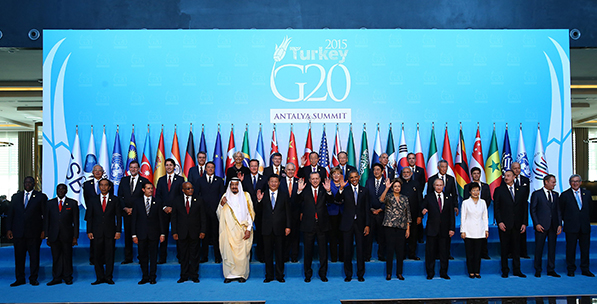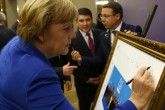Turkey’s presidency of the G20, the highest-level coordination platform on global economic governance, will reach its conclusion this weekend with the summit in Antalya. Following massive media frenzy around the beautiful surroundings of Belek, which is likely to focus on unconventional PR attempts from global leaders and a substantial contribution to the Turkish economy estimated to be at least around 200 million euros, the final declaration will be announced. As always, there will be the standard agenda items – or triple I’s – dominating the declaration, namely investment (facilitating international direct and portfolio investment flows), implementation (monitoring economic reforms in members) and inclusiveness (including non-members in the key decision making processes). Yet, as the rotating president and host of the summit, Turkey has made giving a voice to developing countries and emerging markets its main priority on the agenda of its presidency and is looking to reform global governance to provide more inclusiveness in the market.
In conjunction with the attitude of President Recep Tayyip Erdoğan that the “World is larger than five” to indicate the urgent need for reform in the U.N.’s Security Council and decision making procedures, Turkey has serious reservations regarding the way in which the ailing Bretton Woods institutions regulate the global financial and trading systems. Therefore, structural reforms in global governance mechanisms including the IMF, the World Bank and World Trade Organization is always a crucial agenda item for Turkey in the need to develop global safeguards against speculative financial attacks aimed at developing economies. In critical political conjunctures since May 2013, domestic instability in Turkey triggered by the Gezi movement and the Dec. 17 and Dec. 25 operations, were often implicitly supported and manipulated by international financial circles, including credit rating agencies, certain hedge funds and large-scale investors who tried to influence the domestic configuration of political forces. Therefore, Turkey has an interest in proposing tighter regulations for speculative financial movements without endangering the market-friendly attitude towards international investments.
Moreover, the G20 Summit provides Turkey with the perfect opportunity to bring various items related to the war in Syria to the global negotiating table, such as the creation of a safe zone or the development of a coordinated response in the face of the escalating refugee crisis. The entrance of Russia into the theater of war as a combatant force created completely new dynamics that brought Turkey, Europe and the U.S. closer together in opposition of the geostrategic bloc constituted by Russia, Iran and China. The recent visit of Chancellor Merkel to Turkey and the prospects of rejuvenating accession negotiations for full EU membership gave early indications of Europe’s changing geopolitical attitude towards Turkey in the wake of Russia’s involvement in the war and the refugee crisis. Given the relative strategic isolation that Turkey has faced since the onset of the reversal of the Arab revolutions, the changing atmosphere is vitally important as it might prepare fertile ground for the launch of a new period of pro-activism in Turkish foreign and economic policy.
Given the air of political stability and predictability provided by the Justice and Development Party’s (AK Party) landslide victory in the Nov. 1 elections, the government to be formed will very likely embark on a series of reforms to galvanize democratic consolidation and structural transformation in the economy. Given the relative loss of national self-confidence, security concerns and political volatility since June, Turkey desperately needs a boost to rejuvenate her effectiveness in regional and global diplomatic platforms and restore strong economic growth dynamics. The G20 Summit in Antalya has arrived at exactly the right moment to launch a fresh start for Turkey as a credible actor in world politics through a new wave of pro-activism in Antalya’s unwavering optimistic spirit.
[Daliy Sabah, November 13, 2015]
In this article
- Economy
- Opinion
- 2013
- 2015
- China
- Elections
- EU Membership
- Europe
- European Union (EU)
- G20
- Global Actors | Local Actors
- Islamic Republic of Iran
- Istanbul
- May 28-August 20 2013 The Gezi Park Protests
- Middle East
- Opposition
- Peace Corridor
- Recep Tayyip Erdoğan
- Russia
- Safe Zone
- Syria
- Syrian Civil War
- Syrian Conflict
- Syrian Crisis
- taksim
- The President of the Republic of Türkiye
- Turkish Economy
- Turkish Foreign Policy
- Turkish President
- Türkiye
- Türkiye's Foreign Policy
- Türkiye's Justice and Development Party | AK Party (AK Parti)
- U.N.
- United Nations (UN)
- United States (US)


